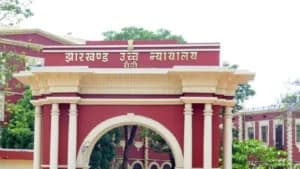The High Court of Jammu & Kashmir and Ladakh has clarified that Chapter X of the J&K Land Revenue Act, Svt. 1996 offers a complete legal procedure for partition matters, including necessary safeguards that must be followed by revenue officers.
While deciding a petition filed by Ashok Toshkhani, Justice Javed Iqbal Wani emphasized that when a valid partition application is submitted under Section 105, all interested parties must be notified. If any party raises objections, especially regarding ownership or title, the revenue officer is legally required to handle the issue as per Sections 109, 110, and importantly, Section 111-A.
Read also:- Delhi High Court Denies Anticipatory Bail to Lawyer in Road Rage Case, Emphasizes Equality Before Law
“A revenue officer is bound to notify all the interested parties, consider objections and decide the preliminary issues. If objections involve title disputes, the officer must follow the procedure laid out under Section 111-A.” – Justice Javed Iqbal Wani
The case arose from a family dispute. Basanti Toshkhani, sister of the petitioner, filed a claim under the J&K Migrant Immovable Property Act, 1997, accusing her brother of occupying her share of ancestral property. However, the application was dismissed because it involved a co-sharer dispute, which the Act does not cover.
Read also:- Kerala High Court: Interrogatories Can't Be Used for Roving Inquiry; 'Test of Prejudice' Is the Key
She then approached the authorities under the Hindu Succession Act to claim her inheritance. The District Magistrate ordered property demarcation and possession delivery, but this was challenged by the petitioner, who claimed sole ownership based on a registered Will from 1986 made by their mother.
The petitioner argued that the District Magistrate lacked the authority to decide title disputes, especially as the property, being a house in urban Srinagar, does not come under the definition of “land” in Section 3(2) of the Land Revenue Act.
“In the present case, the residential house situated in urban Raj Bagh, Srinagar, is excluded from the definition of ‘land’ under Section 3(2), and therefore, outside the jurisdiction of the Revenue Officer under Chapter X.” – Justice Wani
The Court further stated that even if the property were considered land, once a title dispute arises, Section 111-A mandates a proper legal process. This includes either sending the case to a civil court or holding a detailed inquiry using procedures similar to a civil trial.
Justice Wani criticized the District Magistrate’s failure to consider the Will or give the petitioner a fair chance to present his case. The Court found that the decision assumed both siblings were co-owners without determining the actual title, which was the core issue.
The petitioner also questioned the constitutionality of Section 7(1)(b) of the Migrant Property Act, which requires surrendering possession before filing an appeal. The Court dismissed this argument, citing earlier judgments like Jagar Nath Bhari v. State (2007) which had upheld the provision.
Read also:- SC Judgments Referred to Larger Bench Remain Binding: J&K High Court
“The Migrant Act aims to protect migrant properties from unauthorized occupation. Allowing continued possession during appeals would defeat this very purpose.” – J&K High Court
However, since the impugned orders were not passed under the Migrant Act, the Court held that the question of its application did not arise.
In conclusion, the High Court set aside the orders passed by the District Magistrate and Tehsildar, stating they were without legal authority and in violation of procedural requirements under the Land Revenue Act. The parties were allowed to seek remedy through appropriate civil court proceedings.
Case Title: Ashok Toshkhani Vs UT of J&K















